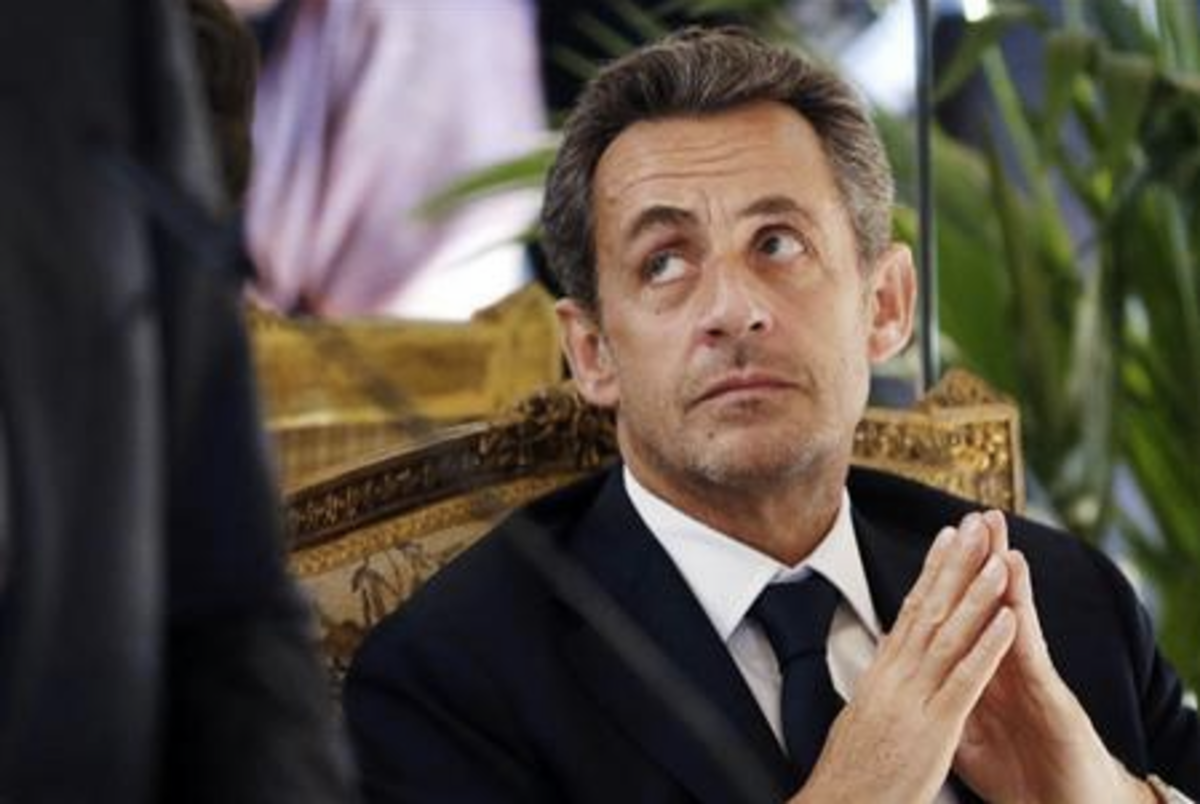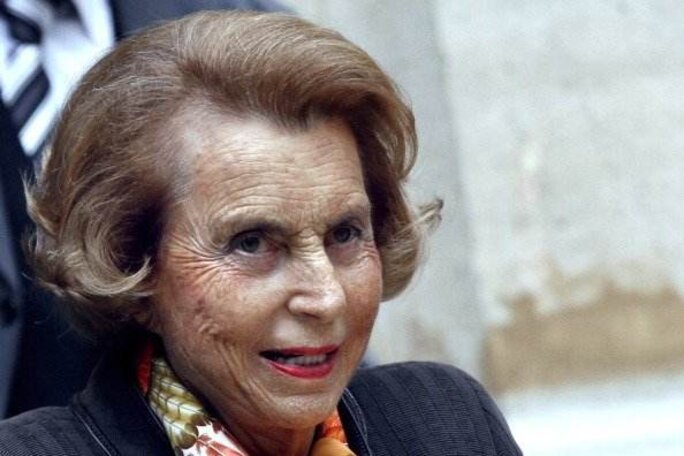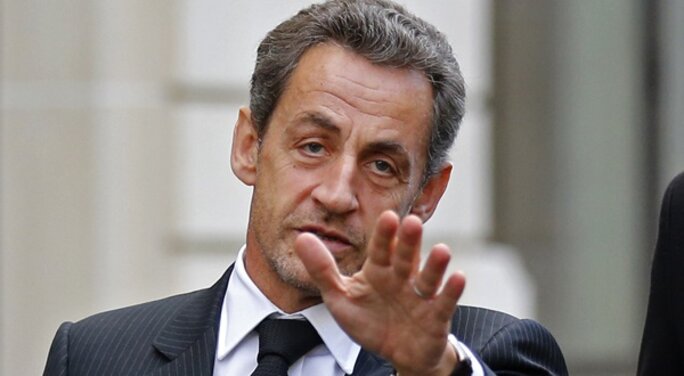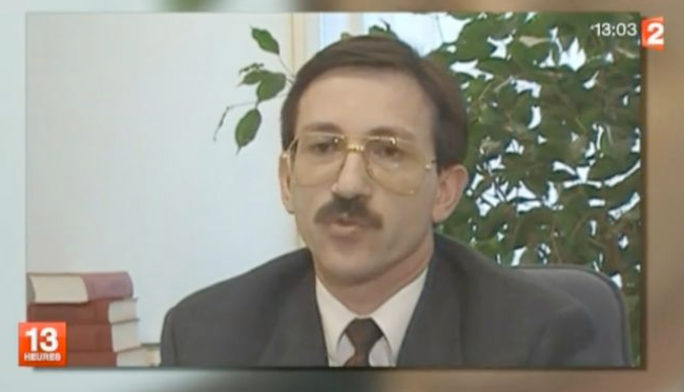Nicolas Sarkozy may have had legal proceedings against him dismissed in the Bettencourt affair. But in their ruling the investigating judges also make it clear in trenchant terms what they think about the former president’s behaviour in relation to the elderly and mentally frail L'Oréal heiress Liliane Bettencourt, now aged 90, who is at the centre of the political and legal drama. In sections of the official judgement by Jean-Michel Gentil and Valérie Noël, extracts of which are published here by Mediapart, the judges write of the ex-head of state's “incriminating behaviour”, his “manifestly abusive behaviour” and the fact that he asked for “hidden financial support” from an “elderly and vulnerable person” in the form of billionaire Liliane Bettencourt, and clearly imply that Sarkozy lied about how often he had met her.
Even though the judges ultimately decided not to send Sarkozy for trial on charges of “abusing the weakness” of Bettencourt, the harsh language used by the judges will not make pretty reading for Sarkozy, his supporters or the general public at a time when he is widely believed to be considering a return to front-line politics. At the very least they put into context the former president's claims after Monday's ruling that he had been declared “innocent” in the affair.

The entire judgement, in which the two judges explain their reasons for sending ten defendants to stand trial in relation to the abuse of and fraud against Liliane Bettencourt, as well as dropping proceedings against Sarkozy and a lawyer, Fabrice Goguel, runs to 267 pages. The part devoted to the former French head of state runs from pages 219 to 227, and is divided into four sections. These include testimony given by Sarkozy to the judges, who was placed under formal investigation in relation to the affair on March 21st, 2013. The allegation was that Sarkozy had visited Liliane Bettencourt in early 2007 to persuade her to hand over cash to help finance his bid to be president that year. Witnesses claim Sarkozy, then the interior minister under President Jacques Chirac, visited the Bettencourts' family home west of Paris on more than one occasion during this period. Sarkozy insisted he visited just once, in February 2007, and did not ask for or receive money. Below are extracts from the four sections.

A. The judges note that: “Nicolas Sarkozy was aware of Liliane Bettencourt's clearly apparent state of vulnerability.” In particular he was “perfectly aware of Liliane Bettencourt's handicap of deafness and of its consequences, that is to say the impossibility of her communicating, and of real comprehension”.
In his evidence Nicolas Sarkozy himself indicated that “with her, conversations were very difficult because she heard nothing. Everyone knew it. No fluid conversation was possible, she didn't hear.” In a revealing anecdote he told the judges: “It was impossible to talk politics with Madame Liliane Bettencourt for two reasons: she was profoundly deaf and she didn't understand [what was being said].” During one meal a few years ago, Sarkozy recounted, “there were about ten people and Madame Liliane Bettencourt was telling me that she was going to go off with [her husband] André to the Seychelles, and that she liked swimming. I told her that I, too, liked swimming a lot. And then, addressing herself to André, she said that they 'had to give the mayor, Nicolas Sarkozy, who likes eating very much, another helping...'”
The judges did not much appreciate the story. “This brief story described as an anecdote by Nicolas Sarkozy is however not very amusing and not likely to entertain,” they write drily, referring to the dictionary definition of 'anecdote'. “On the hand it is a perfect indication of Liliane Bettencourt's difficulties in comprehension, well beyond political matters, of which Nicolas Sarkozy was perfectly aware.”
“In addition, besides his awareness of Liliane Bettencourt's visible vulnerability, because of her deafness, it is impossible that Nicolas Sarkozy had not noticed, on February 24th 2007, the clearly apparent great fragility of this elderly lady (whom despite his denials he met that day), while this fragility was underlined and described by the people who were present, and affirmed by the permanent medical staff at her house 24 hours a day since September 1st 2006.”
'Nicolas Sarkozy went to the home of André and Liliane Bettencourt on two occasions.'
B. Nicolas Sarkozy told the examining judges that he had visited the Bettencourt's home just once during the period in question, on 24th February, 2007. “This meeting on 24th February was with André, I'm categorical,” he said. “I am also categorical in saying that there were no other meetings in 2007, 2008 or 2009, in any case up to the death of André Bettencourt [editor's note, who died 19th November 2007],” he said. Sarkozy, who was interior minister at the time, added: “ What I want to underline is that if I had come back, I would have come back under the same conditions taking into account my obligations concerning my movements at the time.”
In relation to this the judges write: “It was because of these overly assertive spontaneous declarations that new investigations were carried out. They highlighted contradictions between Nicolas Sarkozy's version and those of witnesses, contradictions that were corroborated by documentary proof giving credence to the existence of two visits by Nicolas Sarkozy to the Bettencourt couple's home between January 14th 2007, the date he officially became a candidate for the presidential elections and March 26th, 2007, the date at which he left the ministry of the interior,” write the judges. “From these witnesses and material evidence, it emerges that Nicolas Sarkozy visited the home of Liliane Bettencourt twice, on 24th February 2007 and previously on February 10th 2007.”

Enlargement : Illustration 3

The judges show deep suspicion about the real nature of the meeting on February 24th. “If the existence of this meeting of Nicolas Sarkozy at Liliane and André Bettencourt's home is not contested, the circumstances on the other hand are the object of denials by Nicolas Sarkozy that are, to say the least, surprising, in particular as to who initiated it, its participants and its object.”
As to who initiated it, several witnesses and clues suggest that it was set up by a third party. André Bettencourt's secretary said this third party was Patrice de Maistre, Liliane Bettencourt's wealth manager, though Maistre himself has denied this. But André Bettencourt did not have Nicolas Sarkozy's contact details in his diary, and the judges point out that a meeting between the then-president Sarkozy and Liliane Bettencourt on November 5th, 2008, was “organised on the initiative of Patrice de Maistre”, a member of the conservative UMP party's inner circle of fund-raisers, the Premier Cercle, and who was close to UMP treasurer and minister Éric Woerth, who along with Maistre is one of the ten who has been sent to stand trial.

Enlargement : Illustration 4

Sarkozy also insisted that in his visit to the Bettencourt's home, he only met André Bettencourt. But the judges say that this version of events is “completely contradicted” by the various witness statements of the Bettencourt household. The judges continue: “It is therefore clear that the only aim of these not very credible assertions by Nicolas Sarkozy about him meeting with André Bettencourt alone, on February 24th, 2007, was to avoid having to explain himself as to the true reasons for his meeting with Liliane Bettencourt.”
As for Sarkozy's meeting with André Bettencourt on February 10th, 2007, which Sarkozy denied took place, the judges consider it “possible to suggest that it was not to thank André Bettencourt for his letter of January 19th of the same year, as he would do that in writing on March 19th”.
They note: “On the other hand, it is difficult not to make the link between the delivery to Liliane Bettencourt, on February 5th, 2007, of 400,000 euros, the handing over of all or part of this cash by Patrice de Maistre to Éric Woerth on February 7th 2007 and this impromptu visit [by Sarkozy]” three days later.
C. Nicolas Sarkozy said that the meeting on February 24th 2007 had been at the request of André Bettencourt in a letter of 19th January to discuss the election campaign, and that he, Sarkozy, had gone to thank him, a version of events the judges cast doubt on. They point out that the January letter and another in March make no reference to the meeting, a fact they say undermines the former president's explanations.
As far as the investigating judges are concerned the aim of the meeting was not to thank André Bettencourt. Instead they recall the claims by a witness that Liliane Bettencourt had at this time stated that Nicolas Sarkozy had come to see her and her husband “to ask them for money”. The judges link this to a note found in the diaries of society photographer François-Marie Banier – another who is to stand trial - dated April 26th 2007: “De Maistre told me that Sarkozy had again asked for money.”
The judges conclude: “Nicolas Sarkozy's incriminating behaviour, that is to say his request for secret financial support, necessarily in cash, expressed to Liliane Bettencourt, an elderly and vulnerable person, at a time when he exercised the functions of the minister of the interior and was a declared candidate for the presidential election, is manifestly abusive behaviour.”
D. However, the judges go on to state that despite Sarkozy's behaviour there is not enough evidence to send him for trial. “Taking account of the shortness of the meeting with André and Liliane Bettencourt [on February 24th], it has not been demonstrated that the request for financial support by Nicolas Sarkozy was enough to cause Liliane Bettencourt to [carry out] the sought-after act,” they write. “In addition one cannot exclude this request having also been made to André Bettencourt, who was undeniably present.”
In other words, say the judges, it had not been shown that it was the request for money made to Liliane Bettencourt on February 24th 2007 that had led her to carry out acts that were “gravely prejudicial” to her own interests, namely agreeing to make available 400,000 euros available on April 26th 2007. The responsibility for this, write the judges, lies with Patrice de Maistre, who had already obtained the first steps towards this action on February 5th 2007, “before Nicolas Sarkozy's visit”.
The judges conclude: “In consequence it is stated that the case against Nicolas Sarkozy for abusing the weakness of Liliane Bettencourt is to be dropped.”
However, Éric Woerth, who was treasurer for Sarkozy's presidential campaign, is not spared by the judges. “He received cash sums given to him by Patrice de Maistre,” they write. “The circumstances of this handing over [of cash] establish that Éric Woerth was aware of its fraudulent origins.”
Woerth, Maistre and eight others will stand trial in 2014 accused of taking advantage of Liliane Bettencourt's frailty. All ten deny the charges.
----------------------------------------------
English version by Michael Streeter


